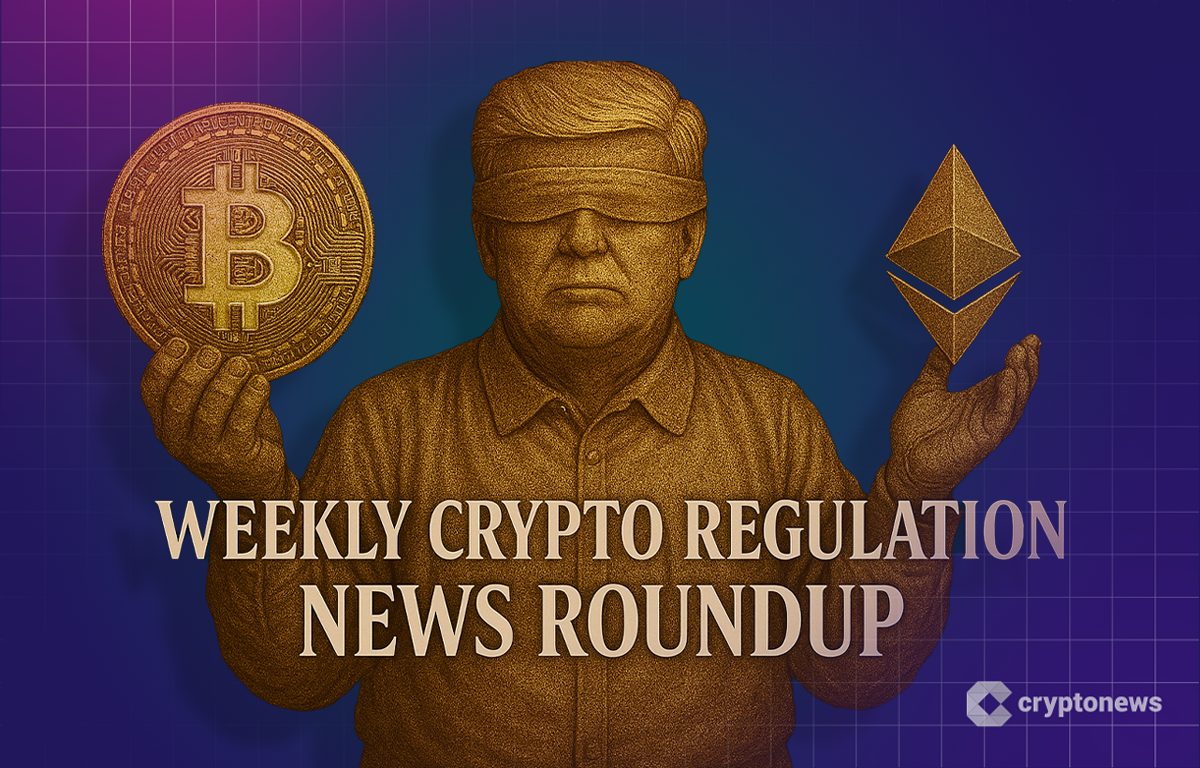Weekly Crypto Regulation Roundup: CZ Pardon Talks Gain Momentum as States Advance Crypto Policy

The past week brought a flurry of regulatory and political developments in the U.S. crypto sector—from a potential pardon for Binance’s Changpeng “CZ” Zhao to states taking bold legislative steps around digital assets. At the same time, the federal government faces continued gridlock over funding, and regulators are pursuing their largest-ever crypto seizure tied to global fraud.
Congress Faces Deadlock, Polymarket Bettors Predict Delay
As the U.S. government shutdown extends into its third week, participants on the decentralized prediction platform Polymarket are betting heavily that Congress will not pass a spending bill until November.
According to the latest data, 84% of bettors believe lawmakers will reach a deal by November 30, while just 30% foresee a breakthrough by October 31. Only 1% expect resolution by October 15, showing deep skepticism about Washington’s ability to move swiftly.
The ongoing impasse has already led to thousands of federal workers being furloughed, with Vice President JD Vance warning that further job losses are likely if Congress fails to break the stalemate.
The prediction market sentiment mirrors the growing frustration across the political spectrum—and shows how blockchain-based platforms like Polymarket are becoming a real-time barometer for political and economic sentiment.
Trump Administration’s CZ Pardon Talks Reportedly Heating Up
In a development that has electrified both political and crypto circles, the New York Post reports suggest that the Trump administration has ramped up discussions about a potential pardon for Binance founder Changpeng “CZ” Zhao.
According to Fox Business correspondent Charles Gasparino, people close to the President say Trump “is leaning toward a pardon,” despite concerns about how it might appear given his administration’s ties to the crypto industry.
“Many Trump insiders believe the fraud case against CZ was weak and didn’t merit a felony conviction or prison time,” Gasparino noted, adding that such a move could “set the stage for CZ’s return to the crypto exchange.”
If granted, the pardon would mark a major political and legal turnaround for Zhao, who stepped down as Binance CEO last year after pleading guilty to U.S. anti-money laundering violations. The talks also indicate how digital assets remain entangled in U.S. political narratives heading into the 2026 election cycle.
California and Florida Chart Divergent Crypto Paths
At the state level, California has made history by becoming the first U.S. state to protect unclaimed crypto from forced liquidation. Governor Gavin Newsom signed Senate Bill 822 into law, ensuring that dormant digital assets like Bitcoin and Ethereum remain in their original form when transferred to state custody under the Unclaimed Property Law (UPL).
The bill, authored by Senator Josh Becker (D-Menlo Park), mandates that custodians notify owners before declaring crypto unclaimed. The measure—passed unanimously in both legislative chambers—indicates California’s growing maturity in addressing digital property rights.
Meanwhile, across the country, Florida lawmakers are pushing for a more proactive, investment-driven approach. The state’s House Bill 183, introduced for the 2026 legislative session, would allow Florida to invest up to 10% of public funds in Bitcoin and crypto ETFs, including allocations from the General Revenue Fund and the Budget Stabilization Fund.
Former CFO Jimmy Patronis, who has long described Bitcoin as “digital gold,” argues that the move could help diversify Florida’s portfolio and strengthen its financial resilience. Together, California and Florida are setting contrasting precedents—one emphasizing consumer protection, the other economic opportunity.
U.S. Launches Record $12B BTC Seizure in Global Crackdown
In the largest cryptocurrency seizure in U.S. history, federal authorities have moved to confiscate 127,000 Bitcoin (worth over $12 billion) linked to a global “pig butchering” scam.
The Department of Justice (DOJ), U.S. Treasury, and U.K. authorities jointly targeted Prince Holding Group, a Cambodia-based conglomerate led by Chen Zhi (Vincent). The network allegedly laundered billions through shell firms, crypto mining operations, and exchanges, exploiting victims across Asia and beyond through online romance and investment scams.
Court filings in the Eastern District of New York detail the transnational nature of the operation, with human trafficking and forced labor intertwined with financial fraud. U.S. prosecutors described it as “one of the most sophisticated online scam ecosystems ever dismantled.”
The scale of the seizure shows Washington’s escalating efforts to combat crypto-driven crime while coordinating more closely with global regulators and enforcement agencies.
The Big Picture: Politics, Policy, and Power Collide
This week’s developments show the evolving complexity of the U.S. crypto policy environment. As states assert their autonomy, federal agencies ramp up enforcement, and political actors use crypto as a policy lever, the industry faces a defining moment.
The combination of state innovation (California’s consumer protection, Florida’s Bitcoin investment proposal) and federal crackdowns (the DOJ’s record seizure) reflects both opportunity and uncertainty for the sector.
Meanwhile, the CZ pardon rumors reveal how deeply intertwined digital assets have become with U.S. politics—a reminder that crypto is no longer just a financial story, but a geopolitical and cultural one too.
With Congress gridlocked and prediction markets betting on prolonged dysfunction, the path forward for crypto regulation may depend less on Washington and more on the states—and the people bold enough to shape policy from the ground up.
The post Weekly Crypto Regulation Roundup: CZ Pardon Talks Gain Momentum as States Advance Crypto Policy appeared first on Cryptonews.



